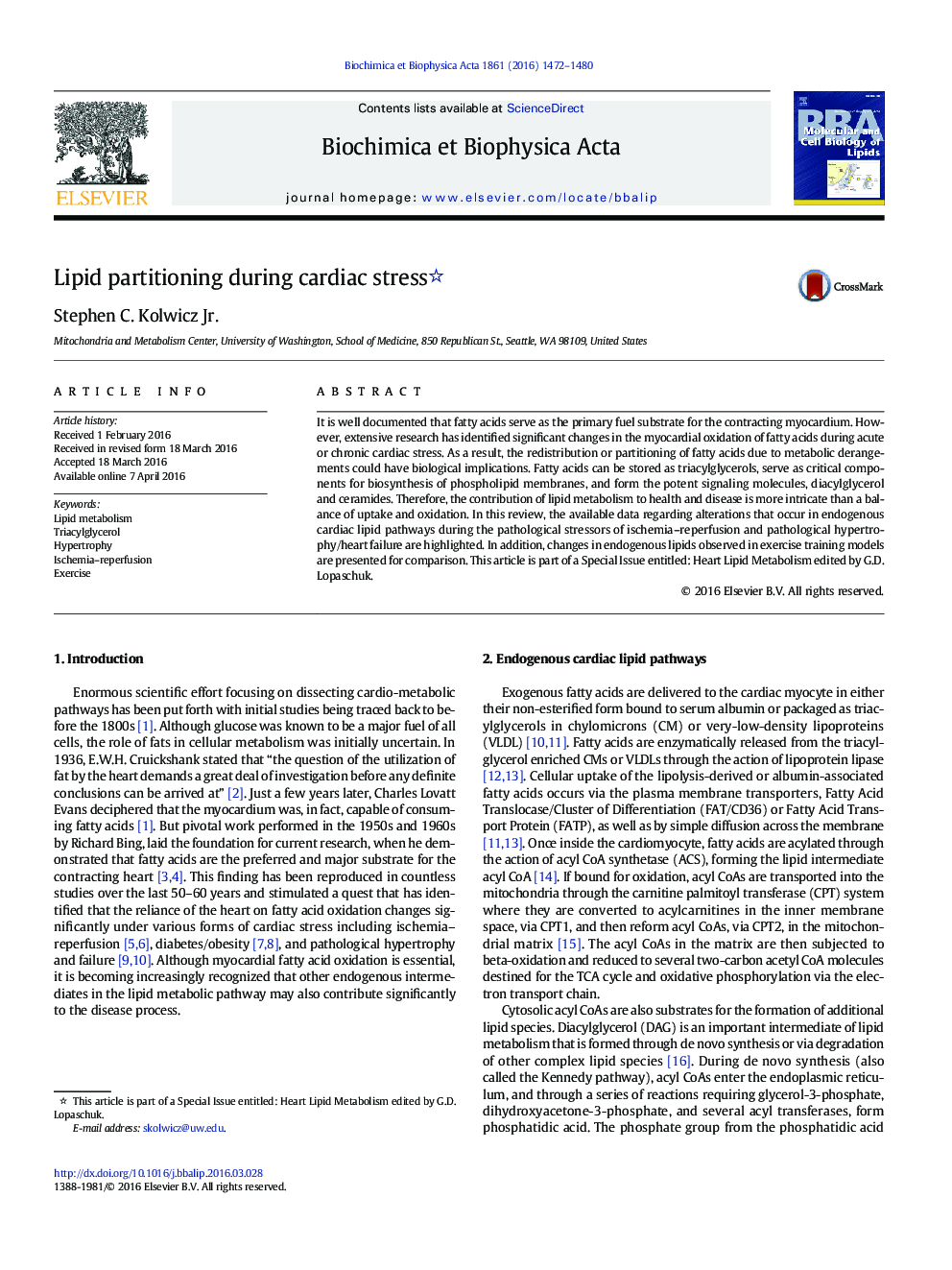| کد مقاله | کد نشریه | سال انتشار | مقاله انگلیسی | نسخه تمام متن |
|---|---|---|---|---|
| 1949030 | 1537699 | 2016 | 9 صفحه PDF | دانلود رایگان |
• In addition to oxidation, fatty acids contribute to other endogenous lipid pathways
• Elevated diacylglycerol and ceramides may promote to ischemia-reperfusion injury
• Impaired oxidation and triglyceride turnover in failing hearts may increase lipids
It is well documented that fatty acids serve as the primary fuel substrate for the contracting myocardium. However, extensive research has identified significant changes in the myocardial oxidation of fatty acids during acute or chronic cardiac stress. As a result, the redistribution or partitioning of fatty acids due to metabolic derangements could have biological implications. Fatty acids can be stored as triacylglycerols, serve as critical components for biosynthesis of phospholipid membranes, and form the potent signaling molecules, diacylglycerol and ceramides. Therefore, the contribution of lipid metabolism to health and disease is more intricate than a balance of uptake and oxidation. In this review, the available data regarding alterations that occur in endogenous cardiac lipid pathways during the pathological stressors of ischemia–reperfusion and pathological hypertrophy/heart failure are highlighted. In addition, changes in endogenous lipids observed in exercise training models are presented for comparison. This article is part of a Special Issue entitled: Heart Lipid Metabolism edited by G.D. Lopaschuk.
Journal: Biochimica et Biophysica Acta (BBA) - Molecular and Cell Biology of Lipids - Volume 1861, Issue 10, October 2016, Pages 1472–1480
